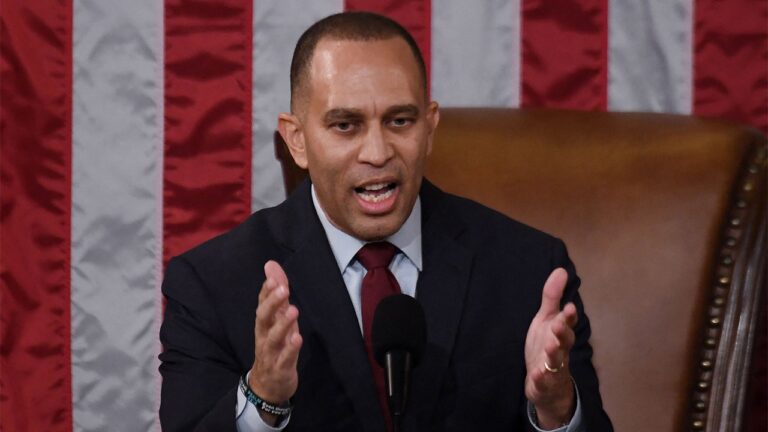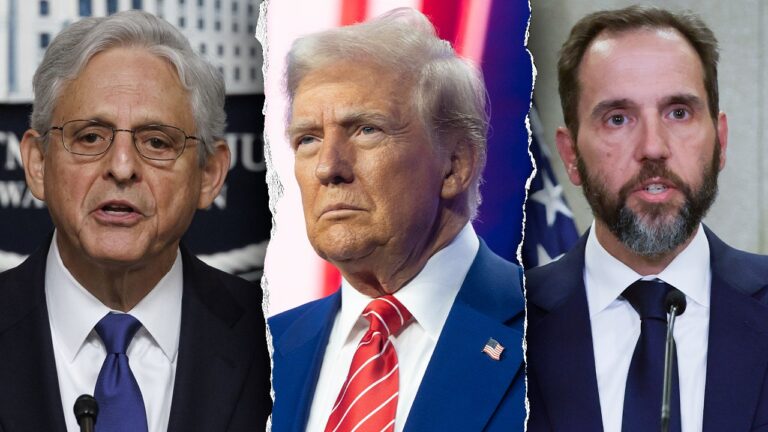
Seeking to investigate leaks of classified information, the Trump Justice Department in 2017 and 2018 secretly obtained phone and text message logs of 43 congressional staffers and two members of Congress in a far broader probe than previously known, according to a new report by the department’s internal watchdog.
The report by Inspector General Michael Horowitz found that the DOJ didn’t act with political motives, but failed to take sufficient account of constitutional separation of powers by seizing communications records of staffers and lawmakers — and making them subjects of a criminal investigation — only because they had lawful access to state secrets through their jobs.
Prosecutors obtained the records using subpoenas and other legal processes to third-party providers, including Apple, and attached gag orders to prevent the companies from notifying the customers. The fact of the seizures had previously been reported, but the IG revealed new details about the broad scope of the effort.
Separately, the IG report released Tuesday found that the Justice Department violated its own policies in the way it secretly obtained phone and text records from reporters in the same leak investigations, which related to the FBI’s probe of suspected Trump campaign coordination with Russia.
The seizures of the records from reporters from The New York Times, The Washington Post and CNN had previously been reported, and the Biden Justice Department stiffened its guidelines on the issue, which previously had been updated in 2014 and 2015 after earlier revelations of secret seizures of news media records.
Although then-Attorney General Bill Barr personally approved the news media subpoenas in 2020, a committee that had been set up to review any such moves was not consulted, as policy required, the report said. Barr did not cooperate with the IG inquiry, the report added.
“We were troubled that these failures occurred only a few years after this overhaul,” the inspector general’s summary said.
The records obtained included phone and message logs showing who was communicating with whom, but not the content of the communications.
Two California Democrats — Sen. Adam Schiff, who was chairman of the House Intelligence Committee, and Rep. Eric Swalwell, who was a member of that committee — previously acknowledged having been targeted by the records seizures.
The IG report comes as President-elect Donald Trump prepares to take office amid calls by some of his advisers to bypass the Justice Department’s traditional separation from the president.
The leak investigations did not result in criminal charges. Given the 10-year statute of limitations for some of the alleged crimes, they could be reopened by the new administration.
The person Trump says he wants to make FBI director, Kash Patel, has specifically vowed to go after reporters. Patel was among the congressional staffers whose records were seized in the leak investigation, according to a lawsuit he filed.
The Justice Department’s new policy requiring officials to notify a news organization if they decide to subpoena reporter phone records except in emergency circumstances could easily be repealed by the new administration.
“The decision by the Department to seek the non-content communications records of Members of Congress and congressional staffers in media leak investigations implicated the constitutional rights and authorities of a co-equal branch of government,” the IG report said, adding that it “risks chilling Congress’ ability to conduct oversight of the executive branch.”
Sen. Ron Wyden, D-Ore., described the revelations in the report as “beyond disturbing.”
“As these abuses demonstrate, there are few guardrails preventing a lone prosecutor or the Attorney General, the Department of Justice or even state or local law enforcement from spying on Congress and threatening our constitutional system of checks and balances,” Wyden said in a statement. “It is particularly concerning that the Department of Justice hoodwinked a judge into signing off on secret surveillance on both Democrats and Republicans in Congress.”













